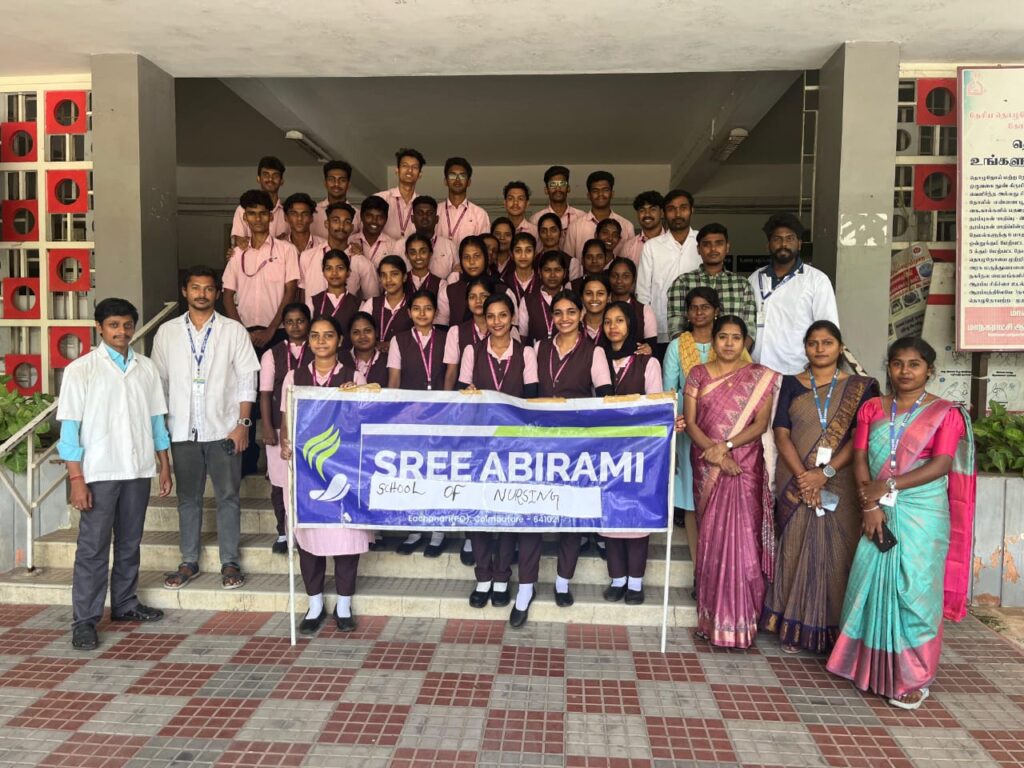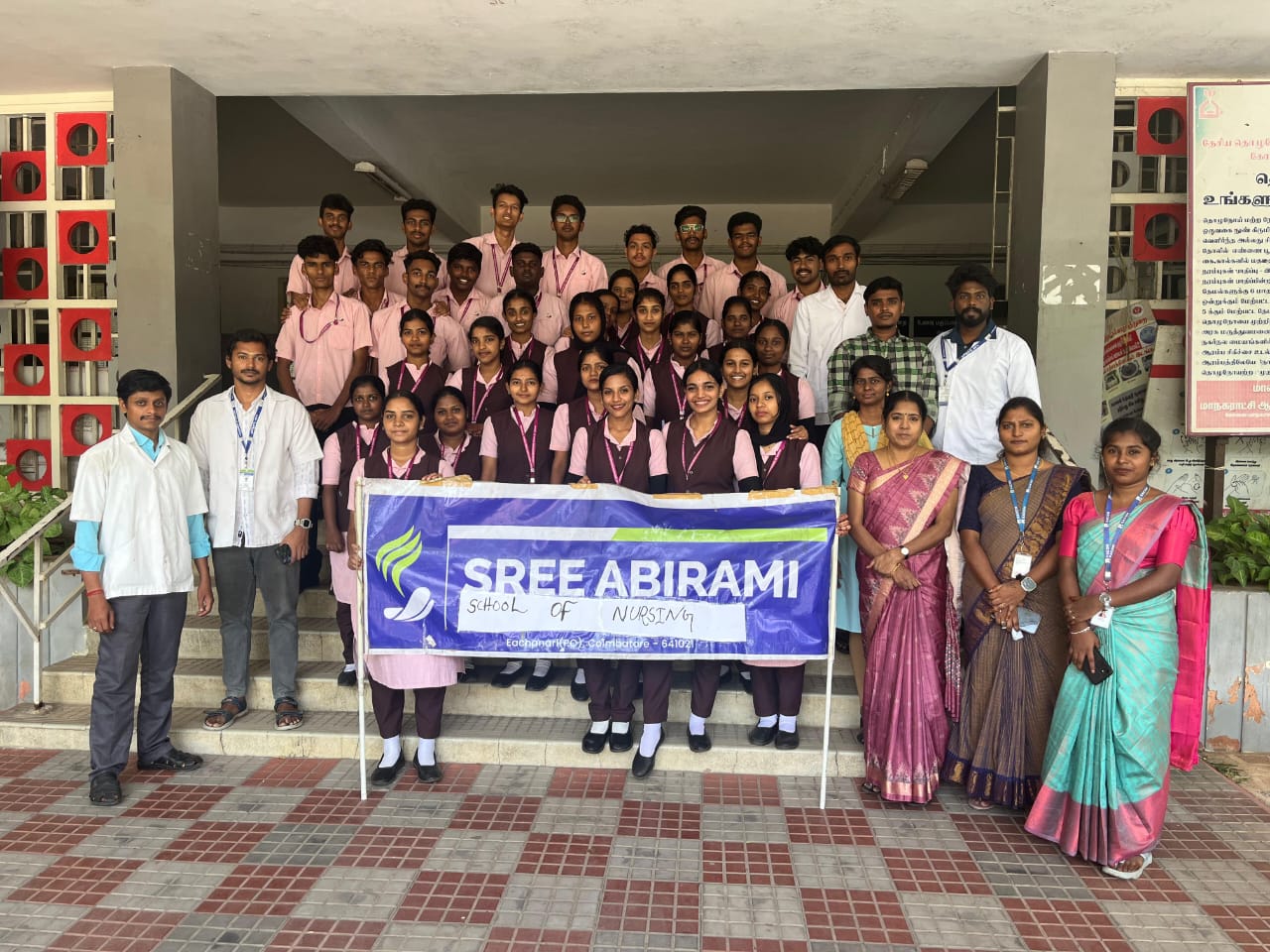
Field Visit to Cold Chain Department – Ensuring Vaccine Safety from Storage to Service
Organized by Sree Abirami School of Nursing, Coimbatore
Date: 24th June 2025 | Venue: DDHS Office, Coimbatore
Vaccines save lives—but only when stored and handled correctly. To bridge the gap between classroom learning and real-world healthcare systems, the first-year GNM students of Sree Abirami School of Nursing, Coimbatore, visited the Cold Chain Department at the Deputy Director of Health Services (DDHS) Office, Coimbatore on 24th June 2025. A total of 34 students, guided by faculty members Ms. Saranya and **Ms. Amutha participated in this educational and insightful field visit.
The objective of the visit was to provide hands-on exposure to cold chain operations, the system that ensures vaccines are stored, transported, and distributed safely, preserving their potency from the manufacturer to the point of administration. This visit formed a vital part of the nursing curriculum, helping students understand the practical aspects of vaccine storage and public health logistics.
The program began at 12:30 PM, following official permission and a warm welcome by the department staff. The students were introduced to the session with an orientation conducted by the Cold Chain Department Officer, who explained the foundational aspects of the cold chain system. The orientation covered several crucial areas:
- The importance of maintaining vaccines at a stable temperature between +2°C and +8°C
- The infrastructure and equipment used in cold chain logistics
- The methods used in vaccine transportation, storage, and inventory control
- The significance of temperature monitoring 24 hours a day, 365 days a year
The session emphasized that even a minor deviation from the recommended temperature range can lead to vaccine degradation, rendering it ineffective and posing public health risks. Students were introduced to key cold chain equipment such as walk-in coolers, deep freezers, cold boxes, vaccine carriers, and ice-lined refrigerators (ILRs).
In a subsequent session, the Director of Public Health and Preventive Medicine, along with the Joint Director, shared further insights into the large-scale logistics of vaccine distribution. They highlighted the role of the Regional Vaccine Store (RVS) in coordinating the supply of vaccines across multiple districts, including Tiruppur, Vellore, Salem, Namakkal, Tirunelveli, and Thanjavur. The RVS serves as a critical hub, ensuring a consistent supply, proper documentation, and cold chain maintenance across Tamil Nadu.
The directors also discussed the procurement and manufacturing process of vaccines, the role of the Universal Immunization Program (UIP), and the importance of government health policies in ensuring immunization reaches the last mile. They also touched on the protocols followed during emergencies, such as during COVID-19 vaccine storage and delivery, which provided an excellent real-world example for students.
The field visit gave students a deeper appreciation for the behind-the-scenes efforts required to make every vaccination campaign successful. They learned how nurses play a pivotal role in maintaining cold chain integrity—whether it’s ensuring vaccines are stored properly at Primary Health Centers, monitoring temperatures in ILRs, or educating communities during immunization drives.
Throughout the visit, students were highly engaged, asking questions and relating their theoretical knowledge to practical application. The department officers encouraged this curiosity, sharing experiences from the field and stressing the importance of cold chain vigilance in preventing vaccine-preventable diseases.
The field visit concluded with a feedback session where students reflected on what they learned. Many expressed their newfound respect for public health logistics and the systematic coordination required to protect community health through immunization.
In conclusion, the visit to the Cold Chain Department at the DDHS Office provided an eye-opening learning experience. It not only enhanced the students’ understanding of vaccine safety, storage, and distribution, but also reinforced the critical role of nurses in maintaining the integrity of life-saving immunization services. Sree Abirami School of Nursing continues to provide such meaningful field exposures, ensuring that students are prepared for the diverse roles they will play as healthcare professionals in society.
